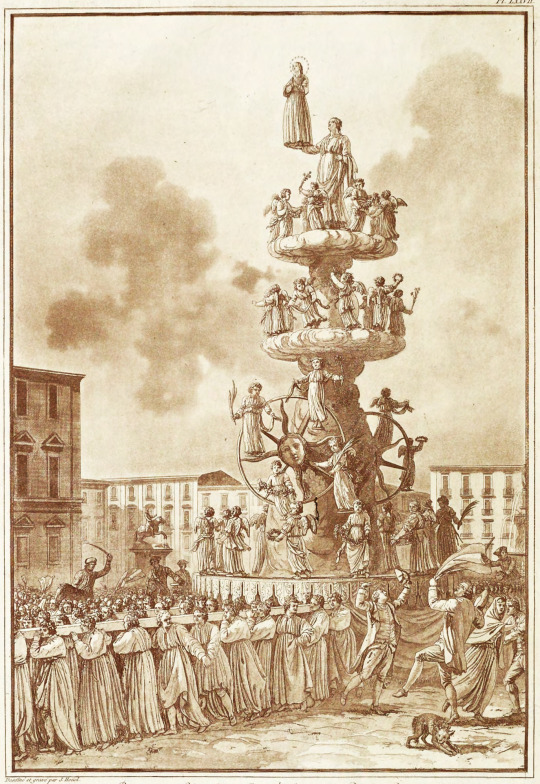Text

Louis François Cassas - View of Messina Harbor with the Palazzata, designed by Simone Gullì in 1622
7 notes
·
View notes
Text









Lisabetta’s brothers kill her lover; he appears to her in a dream and tells her where he’s buried. She exhumes him in secret and hides his head in a pot of basil; and since she wails on it every day, her brothers take it away from her, and she dies soon after.
Boccaccio’s Lisabetta da Messina in art
28 notes
·
View notes
Text
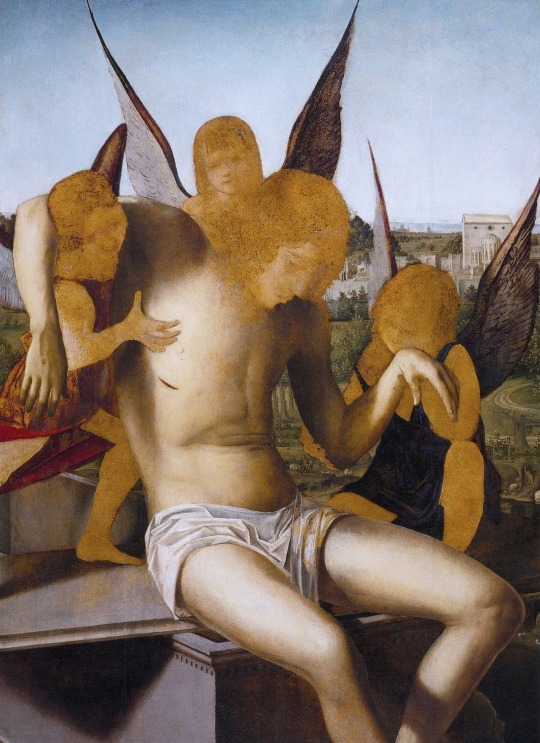
Antonello da Messina (ca. 1430-1479)
"Pietà (Dead Christ supported by three angels)", ca. 1475
Museo Correr, Venice
2K notes
·
View notes
Text

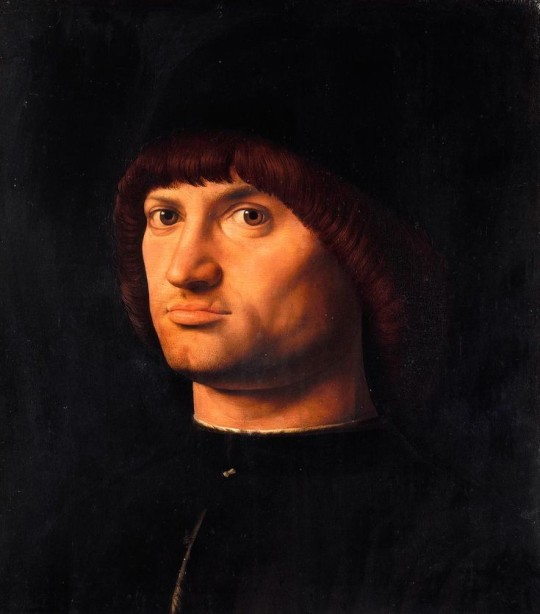
Portrait of a man, called condottiere, 1477 by Antonello da Messina (1429/31-1479)7
6 notes
·
View notes
Text

Antonello da Messina, Cristo em Paixão, Apoiado por um Anjo (1478)
4 notes
·
View notes
Text









Lisabetta’s brothers kill her lover; he appears to her in a dream and tells her where he’s buried. She exhumes him in secret and hides his head in a pot of basil; and since she wails on it every day, her brothers take it away from her, and she dies soon after.
Boccaccio’s Lisabetta da Messina in art
28 notes
·
View notes
Text
Ritratto di uomo (Antonello da Messina)
Beato Matteo da Girgenti?


2 notes
·
View notes
Text

'Messina, A Panoramic View Of The City Towards The Sea From The Colle Del Tirone'. Gaspar Van Wittel. 1653-1736.
19 notes
·
View notes
Text
Fluchtpunkt Messina
Titelbild: Messina, die „Palazzata“ (1500 Meter lange, einheitliche Palastfassade am Ufer aus dem 19. Jahrhundert), Aufnahme um 1900, die „Palazzata“ wurde bei dem katastrophalen Erdbeben am 28. Dezember 1908 zerstört;Quelle: https://commons.wikimedia.org/wiki/File:Messina_vist_des_del_mar.jpg Der Frachtdampfer „Albany“ in Sizilen Viele Frachtschiffe der Deutsch-Australischen…

View On WordPress
1 note
·
View note
Photo
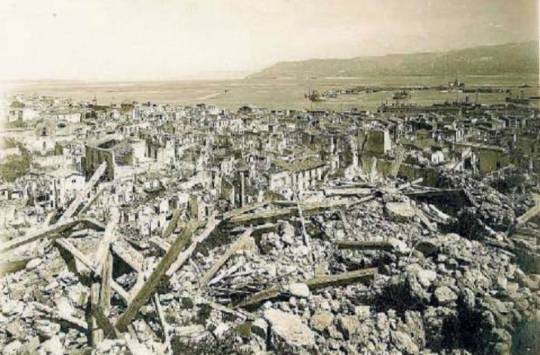
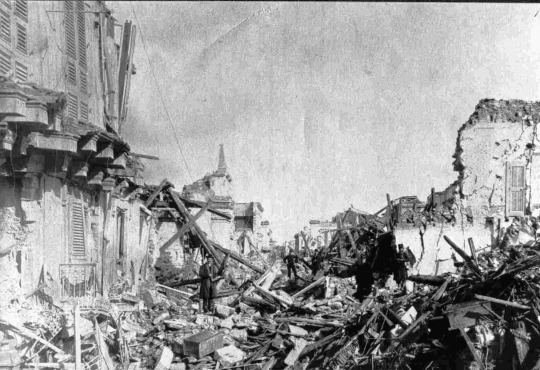
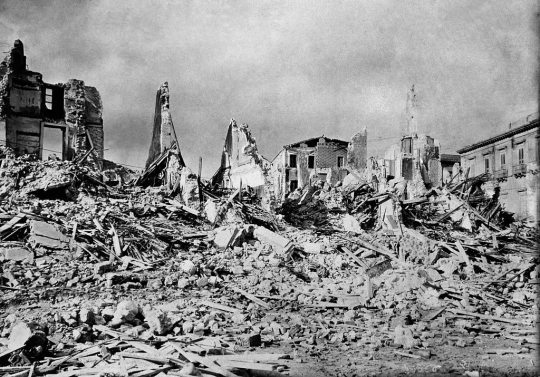
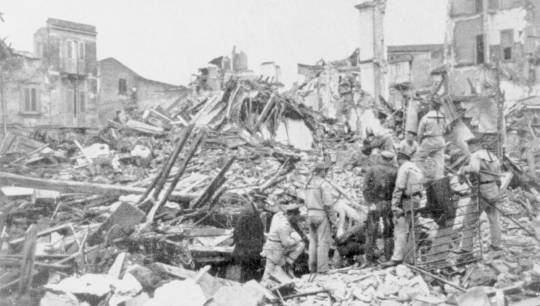
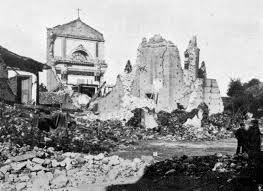
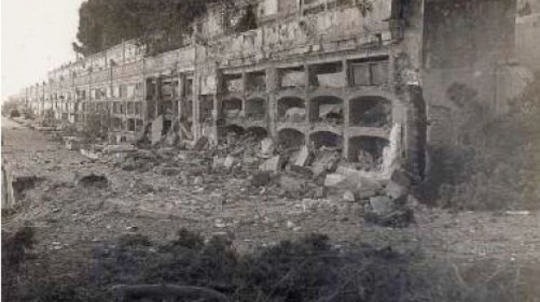
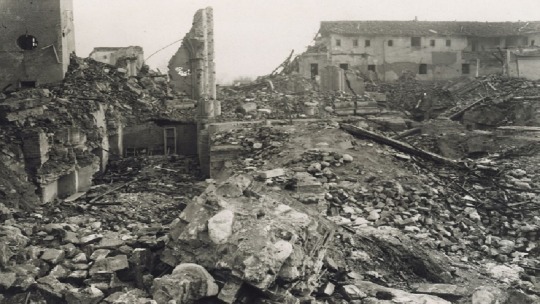
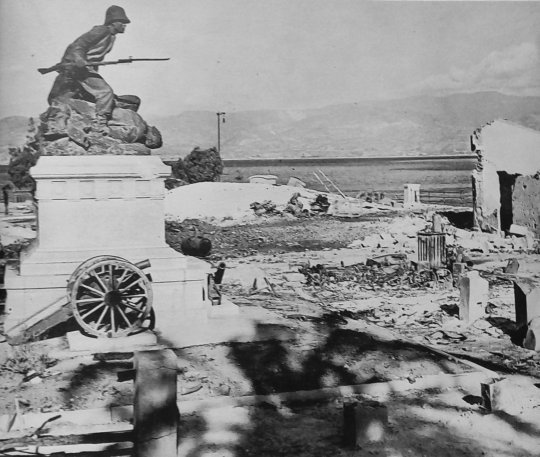
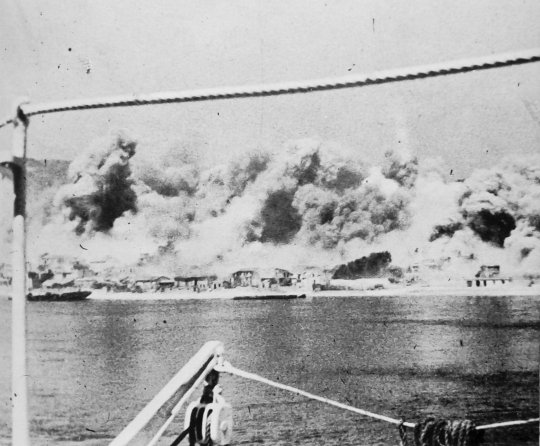
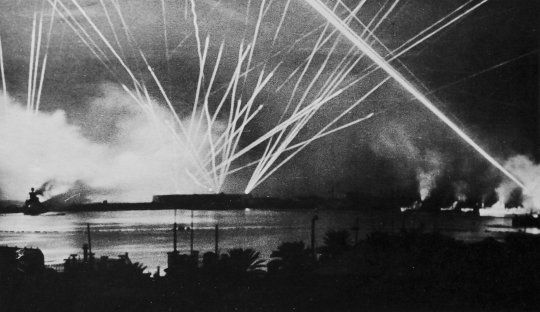
MESSINA DOPO IL TERREMOTO DEL 1908 (5 FOTO) E DOPO IL BOMBARDAMENTO DEL 1943
Non si può non parlare d’amore, quando pensi alla guerra dietro l’angolo, i campi arati dalle bombe, il nero delle case bruciate, il fango delle trincee, il rosso dei corpi dispersi nei cortili. Non puoi non parlare d’amore quando pensi alla terra che si è aperta, squarciandosi come offesa dagli orrori degli uomini, divorando i semplici e i ladri, i puri e i peccatori, i colpevoli e gli innocenti, scrollandosi di dosso vite e città come i purosangue fanno con la pioggia. In entrambi i casi case distrutte, orfani piangenti, donne disperate, lacrime di ghiaccio, fiori di sangue e speranze recise ovunque si guardi. Ogni morto è un crocifisso, ogni ferito un lazzaro che non sa resuscitare e tra la disperazione e il dolore, solo l’angelo della morte incede sicuro con le braccia colme di vite finite come un bracciante che porta un fascio di spighe di grano durante una mietitura senza fine. Ma non è per amore che il soldato muore? Non accetta forse orrori e sofferenze per difendere chi ama e quanto ritiene giusto per loro? Non è amore quello rimasto sotto le macerie su cui si piange, non per le finestre o i mattoni rotti ma per gli affetti rimasti tagliati a mezzaria come i fili sottili di una ragnatela rotta per divertimento? Non è amore disperato quello che si prova per chi è rimasto, amore trasformato in dolore perché non si può più donare certezze e speranze, sicurezza e serenità? Non è l’amore quanto ci spinge a seminare i campi squarciati, a costruire la vita in nuove case, a cercare quella pace che dell’amore è l’unica difesa? Per questo l’angelo della morte non ha potere su versi e canzoni, su stagioni e maree, sulle albe e sulle stelle, perché essi possano nutrire d’amore i bambini di domani cosi che sappiano cancellare le guerre e il male degli uomini e l’indifferenza della natura. Per questo ogni tramonto porta nuove rime, ogni stella è la prima nota di una nuova canzone e nel buio di questi giorni, sono l’unico arcobaleno che indica la pace.
You can’t not talk about love, when you think of the war around the corner, the fields plowed by bombs, the black of the burnt houses, the mud of the trenches, the red of the bodies scattered in the courtyards. You cannot not speak of love when you think of the earth that has opened up, tearing itself open as if offended by the horrors of men, devouring the simple and the thieves, the pure and the sinners, the guilty and the innocent, shaking off lives and cities like thoroughbreds they do with the rain. In both cases destroyed homes, weeping orphans, desperate women, tears of ice, flowers of blood and dashed hopes everywhere you look. Every dead person is a crucifix, every wounded man a lazarus who cannot resurrect and between despair and pain, only the angel of death walks safely with his arms full of finished lives like a laborer carrying a bundle of ears of corn during a endless harvest. But isn’t it for love that the soldier dies? Doesn’t he accept horrors and sufferings to defend those he loves and what he thinks is right for them? Isn’t that love left under the rubble on which we cry, not for the broken windows or bricks but for the remaining affections cut in mid-air like the thin threads of a spider web broken for fun? Isn’t it desperate love that one feels for those who are left, love transformed into pain because one can no longer give certainties and hopes, security and serenity? Isn’t it love that drives us to sow torn fields, to build life in new homes, to seek that peace which is love’s only defense? For this reason the angel of death has no power over verses and songs, over seasons and tides, over dawns and stars, so that they can feed the children of tomorrow with love and hope so that they know how to erase wars and the evil of men and the indifference of nature. That’s why every sunset brings new rhymes, every star is the first note of a new song and in the dark of these days, they are the only rainbow that indicates peace.
13 notes
·
View notes
Text
Guarda "Messina nel 1780 - Ricostruzione 3d" su YouTube
youtube
2 notes
·
View notes
Text
Dai un'occhiata a questo post… "La tomba del fondatore del Messina football club 1900 Adolfo Marangolo".
0 notes
